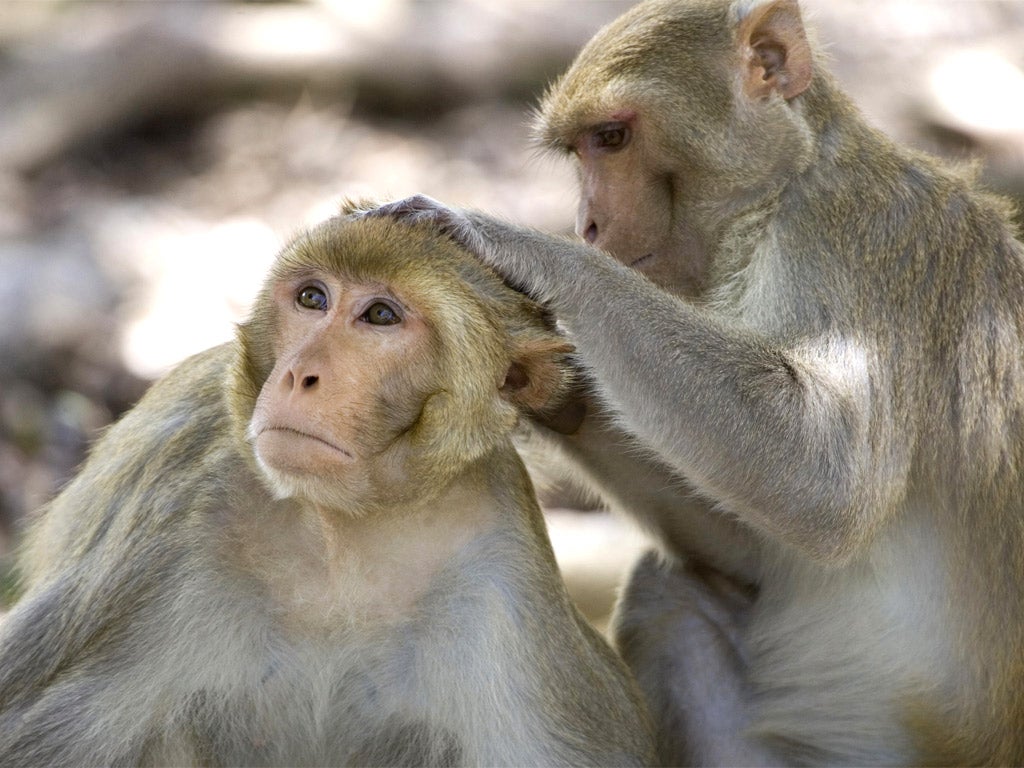Universities forced to come clean about controversial primate experiments

Your support helps us to tell the story
From reproductive rights to climate change to Big Tech, The Independent is on the ground when the story is developing. Whether it's investigating the financials of Elon Musk's pro-Trump PAC or producing our latest documentary, 'The A Word', which shines a light on the American women fighting for reproductive rights, we know how important it is to parse out the facts from the messaging.
At such a critical moment in US history, we need reporters on the ground. Your donation allows us to keep sending journalists to speak to both sides of the story.
The Independent is trusted by Americans across the entire political spectrum. And unlike many other quality news outlets, we choose not to lock Americans out of our reporting and analysis with paywalls. We believe quality journalism should be available to everyone, paid for by those who can afford it.
Your support makes all the difference.Universities will be forced to reveal details of controversial research, including testing on monkeys, after a tribunal ruling made it harder for them to claim exemption from Freedom of Information requests.
Newcastle University had argued that responding to requests could endanger the safety of scientists or harm its commercial interests. But a landmark ruling by the Information Tribunal found in favour of the British Union for the Abolition of Vivisection (BUAV) in its three-year battle against the university, insisting it hand over details of Home Office licences to conduct experiments on primates.
The charity claimed the lead researcher had been refused permission by the authorities in Germany to carry out the invasive brain techniques, which involved restraining macaques and limiting their water supply. It also said that no human benefit had emerged from the trials.
Campaigners believe the decision could have implications for Britain's university sector and it follows calls by Sir Paul Nurse, the President of the Royal Society, for the FOI Act to be reviewed.
Sir Paul told The Independent this week that the legislation was being used as an aggressive "tool of intimidation" against researchers engaged in high- profile studies on climate change, tobacco or using laboratory animals.
The University of Newcastle, which has already spent £230,000 opposing the applications from BUAV, is now expected to go to the Court of Appeal, where it will argue the licences are exempt under the Animal Scientific Procedures Act.
The tribunal concluded that a recent decline in animal rights violence meant researchers were unlikely to become targets for extremists. It added: "Refusal to communicate with the public carries its own risks... creating the impression there is something to hide."
It said assertions that disclosing details of the licences might prejudice commercial interests were "borderline".
The tribunal, which agreed to make minor redactions from the licences, concluded: "It is not in dispute that the public has a legitimate interest in knowing what is going on by way of animal research and the extent to which regulatory functions are being properly discharged."
Michelle Thew, chief executive of BUAV, was delighted by the ruling. "These are controversial and invasive experiments carried out on monkeys at a public institution. The public has a right to know what is happening to these poor animals and why," she said.
A spokesperson for Newcastle University said: "The university carries out a small amount of scientific work on primates where no alternative for the research exists and this is fully regulated by the Home Office."
Join our commenting forum
Join thought-provoking conversations, follow other Independent readers and see their replies
Comments